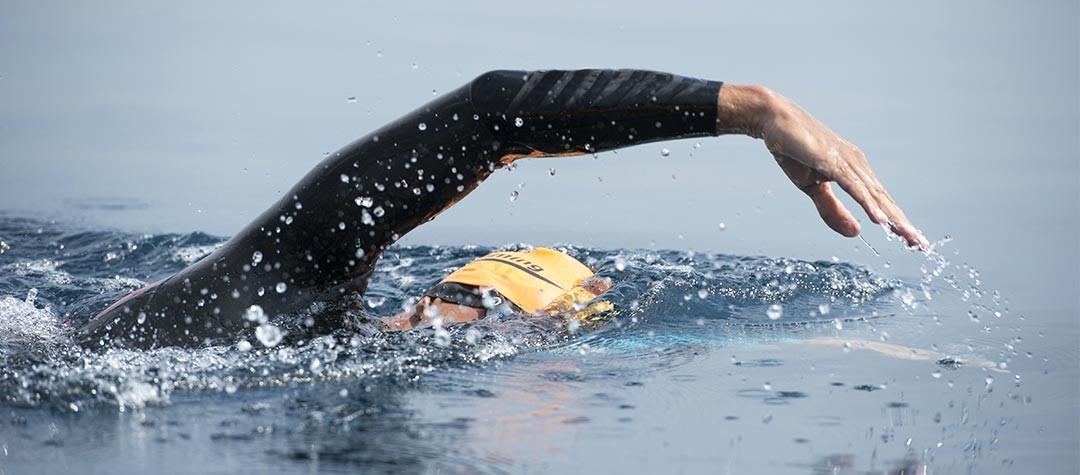Fueling your endurance swims well is vital, especially for open water swimming. But which method - fuelling on carbs or fats - works best? Open water swimmer Adam Walker looks at the pros and cons of both methods.
There is an ongoing debate on what is the best fuel for endurance swims and other long distance disciplines. This debate won’t be resolved today, however we look specifically at open water endurance events and how best to fuel.
In countries such as the UK you will normally burn more calories in open water than in the pool as it is likely to be colder, which means your body has to work harder and therefore burn more calories. On average at you can burn anything between 700-1,000 calories an hour outside depending on your speed and effort. These calories need to be replaced to provide you with enough energy to continue.
On average at you can burn anything between 700-1,000 calories an hour outside depending on your speed and effort.
Now I swam all 7 of the toughest ocean swims in the world feeding on a carbohydrates believing this was the best solution for me at the time, however as more research comes out regarding fats for fuel, I continue to keep an open mind and have decided to look into this further.
Carbohydrate for fuel
A study back in the 1960s established that carbohydrates play an important role in fatigue, and taking on carbohydrate during exercise can improve endurance capacity effectively helping prolong the exercise and providing you with additional energy to complete the activity.
The science that backs this theory up is that high intensity training over a prolonged time requires VO2 max to perform, of which carbohydrate is the main source of fuel. You can absorb approximately 1g of carbohydrate per kilo of body weight per hour. There are various branded products available which are high in carbs in powdered form diluted in water or in the form of gels.
Although feeding on carbohydrates as the main source of fuel increases your glycogen stores you will eventually deplete them and have to refuel at this point as your energy and performance will drop and you will have to re-fuel again.
High fat for fuel
This concept is based on the fact that we can store approximately 2,500 calories of carbohydrates. However we carry approximately 40,000 fat calories, therefore if we can convert our body to fuel on fats then we will in theory not have the drop in energy levels.
Well trained endurance athletes are very good at oxidising fatty acids.
Well trained endurance athletes are very good at oxidising fatty acids. In order for this to happen the body has to be converted, which involves depleting your carbohydrate reserves in order to use fat as fuel and as a nation we eat a lot of carbs. This can be a shock to the system initially causing a drop in energy levels.
It is believed that the ideal high-fat diet for sports performance would be approximately 85 percent fat and almost no carbohydrates. This extremely fatty diet leads to a condition known as ketosis, during which the body creates molecules called ketones that result from the breakdown of fat into fatty acids.
The body and brain will burn ketones as fuel when the blood does not contain much sugar. Ketones and fatty acids fuel strenuous exercise in people following a very high-fat diet and aid in their recovery from that exercise by reducing muscle damage. This wouldn’t work for high-intensity sprints, as there is a need for fast burning sugar stores.
So what is the answer? Well I don’t believe one shoe doesn’t fit all. I have trained athletes who train just on a high carb diet and also those who have converted to a high fat for fuel diet. For me, I say if a nutrition plan is working for you then why change it? However, I am also open to trying different ways of maximising performance.
From my experience athletes don’t tend to be in-between they are either pro one or the other. I would say until you have tried both it is hard to place judgement and test out both theories.
Personally, I like the idea of not having a drop in energy and not having to fuel on carbohydrates to maintain performance. However, I would need to be convinced that a high fat diet would maintain the performance I achieved over 17 hours of constant swimming whilst taking carbohydrates. The important thing, as I mentioned previously, is to keep an open mind and test it out in training if the current way is not working for you.














